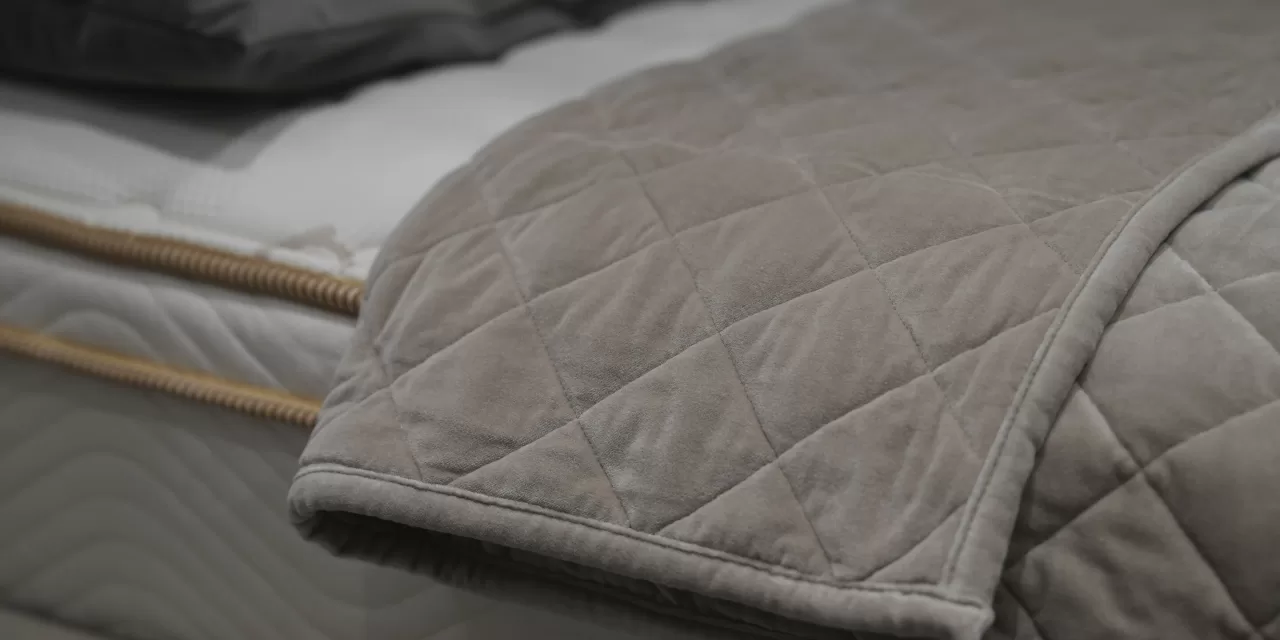Rhonda James didn’t expect much when her husband bought her a weighted blanket online. Yet just five minutes after wrapping herself in its comforting weight, she drifted into a deep sleep.
“It felt like a really big hug,” said James, a banker from Charleston, South Carolina.
As temperatures drop, weighted blankets are becoming a popular addition to cozy winter routines. Many users claim the extra weight not only provides warmth but also helps calm their minds, making it easier to fall asleep. But what does science say about their effectiveness?
What is a Weighted Blanket?
Weighted blankets are made heavier with fillings like glass beads, pellets, or cotton. While the exact mechanics aren’t fully understood, experts have some theories.
According to Dr. Neal Walia, a sleep medicine expert at UCLA Health, the evenly distributed pressure from a weighted blanket may help calm the body’s fight-or-flight response.
“The weight signals your body, ‘Hey, you’re in a calm environment,’” Walia explained.
Additionally, the pressure might trigger the release of oxytocin, often called the “love hormone,” which reduces anxiety and fosters relaxation.
How to Use a Weighted Blanket
For most healthy adults, the ideal weighted blanket should weigh about 10% of their body weight. For example, a 150-pound person would typically choose a 15-pound blanket.
However, these blankets aren’t suitable for everyone. Babies, toddlers, or people with respiratory issues or sleep disorders like sleep apnea should consult a doctor before use.
Weighted blankets also come in a wide price range, from $50 to over $300, depending on the size, weight, and material. Some people, like James, use them not just for sleeping but to unwind while watching TV or sipping wine.
Others, like Lucy Taylor, a freelance writer from Wales, find them especially helpful during anxiety-filled winter nights. “If my body’s relaxed, my mind follows suit,” she said.
Do Weighted Blankets Really Improve Sleep?
Scientific evidence on weighted blankets is limited. Most studies focus on people with chronic sleep problems, mental health conditions, or developmental disorders, rather than the average sleeper.
A study involving 120 insomnia sufferers found that weighted blankets helped participants sleep better compared to lighter blankets. However, a separate study on 67 children with autism showed no measurable sleep improvement—though the children and their parents preferred the weighted blankets.
For adults with chronic pain, one study revealed that heavier weighted blankets reduced pain better than lighter ones, though their impact on sleep remained unclear.
Should You Try One?
While research is inconclusive, sleep experts see no harm in giving weighted blankets a shot.
Dr. Daniel Barone of Weill Cornell Medicine recommends them as a secondary option for patients who don’t find success with traditional treatments.
“If it doesn’t hurt and it may help, it’s worth a shot,” he said.
For those intrigued by the idea of a warm, comforting hug at bedtime, a weighted blanket might just be the cozy solution you’ve been looking for.











